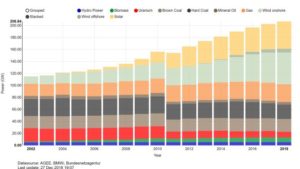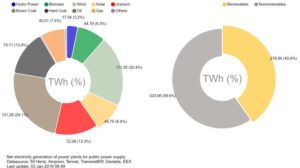Germany To Advocate for Climate Change at Its UNSC Seat
 Will Climate Change sit well with UNSC?
Will Climate Change sit well with UNSC?
Germany on 1 January assumed a two-year seat as a non-permanent member of the United Nations Security Council(UNSC) for the sixth time since the international organ took shape after World War II. The German government says that it plans to use its diplomatic clout to place Climate Change Concern as a part of UN security policy.
After the COP24 Summit Climate Change had been a thorny issue in World diplomacy along with global security. The task is, even more trickier as Germany is also heading NATO’s highest alert combat formation. The thing to watch will be Germany’s National decision-making process at the time of Brexit. While, on the other hand, as a non-permanent member of the UN Security Council, it’s easy to foresee the animosity between Germany and the Trump administration vis a vis Climate Change- issue that Trump’s White House has dismissed so far.
Climate change ranks among the “vital questions” to fix for the global community, German chancellor Angela Merkel said in her New Year’s address. “I am guided by the conviction that we will only master the challenges of our time if we hold together and if we work with others across boundaries and borders,” she said.
German foreign minister Heiko Maas in a statement on 1 January also said that UNSC, “must address the fact that climate change can become a security problem in many places around the world”.
People who are most vulnerable to global warming, such those in Pacific Island states, are counting on Germany, with its long history of environmental advocacy, to put the issue back on the agenda in 2019/20.
Renewables supplied a record 40.4 percent of net power generation for public supply in Germany in 2018, writes research institute Fraunhofer ISE in its preliminary full-year review. All fossil fuels produced less electricity than in 2017, while most renewables increased generation.

Net installed electricity generation capacity in Germany
But its announcement to phase out all its reactors by 2022 in the wake of Fukushima Nuclear disaster has hit a wall. The country, though making headways, is still dependant on coal to generate a third of its electricity. It’s on track to blow past its 2020 emissions reduction targets; instead of cutting greenhouse gas pollution by 40 percent it will only fall by 32 percent. Burning coal is fueling the rage of anti-coal environmentalists, who have also been protesting the expansion of a coal mine between Cologne and Aachen.

Net public electricity generation in Germany in 2018
But Merkel is also under pressure from unions and influential industrial sectors like cars, which is prompting Germany to push an increasingly tough line in EU climate talks. Germany will have to delicately balance efforts to combat climate change and restructure its energy mix with Renewable sources. UN science report which found that if the world is to hit a goal of limiting global warming to no more than 1.5 degrees Celsius, the role of low-emitting nuclear energy is likely to rise significantly. The median estimate sees nuclear power boost its role in the global energy supply by more than half between 2020 and 2050. The news has been greeted with joy by the nuclear lobby.




